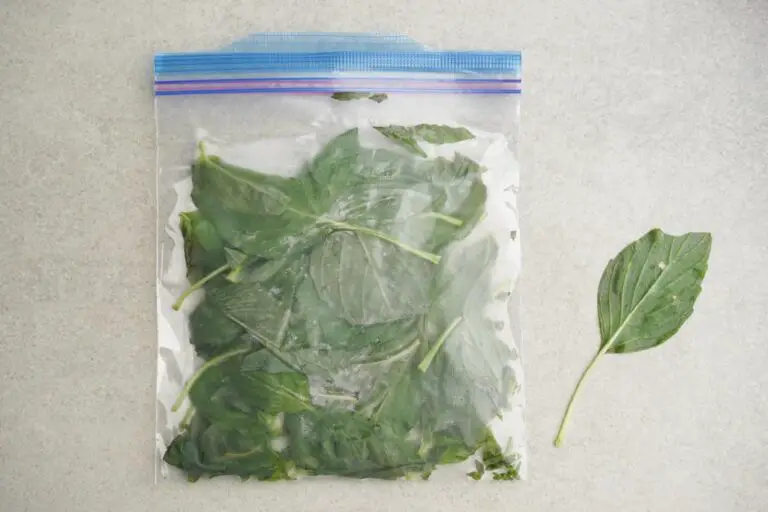Are There Health Benefits of Eating Pasta Every Day?

Pasta is a beloved food for many, and for good reason. It’s affordable, versatile, and easy to make. But what if you’re maintaining a healthy lifestyle and eating pasta every day?
Most people would say that eating pasta every day is not the healthiest decision they could make, but a new study has found that this food is not as bad for you as once thought.
In this post, we will try to find many health benefits to eating pasta every day. While pasta doesn’t have any magical properties that will help you lose weight, it does have a lot of nutritional benefits.
What Makes Pasta a Healthy Diet?
- Pasta Doesn’t Have Much Salts
You know that too much salt or sodium minerals can play a role in heart disease, high blood pressure, and other health problems.
Pasta doesn’t have a lot of salt. In fact, most pasta sauces only have about 200 milligrams of sodium per serving. Compare that to the recommended daily allowance of 2,300 milligrams, and it’s easy to see that pasta is a low-salt food.
This means that people with high blood pressure or other health conditions that require a low-salt diet can enjoy pasta without worry.
- Pasta Doesn’t Have Much Fat
Pasta is a popular food choice for people who are looking to maintain a healthy diet. But does pasta have much fat?
The answer is no. In fact, one cup of cooked pasta only has about 200 calories, and less than 1 gram of fat. So if you’re looking for a healthy, low-fat meal option, pasta is definitely a good choice.
- Pasta Is Cholesterol Free
Pasta will not, contrary to popular belief, cause an increase in your blood cholesterol levels. If you select the appropriate types, it may even assist you in maintaining a healthy cholesterol level. Pasta, like any other dish, should be consumed in moderation for the optimum experience.
- Pasta Contains Important Minerals and Vitamins
Pasta is a great food to include in your diet because it contains minerals and vitamins. Minerals are essential for the body to function properly, and vitamins are necessary for growth and development.
Some of the minerals found in pasta include magnesium, phosphorous, zinc, and potassium. These minerals are important for maintaining bone health, regulating blood pressure, and keeping the heart-healthy.
Additionally, pasta is a good source of thiamin, niacin, and riboflavin—vitamins that are important for energy production, nervous system function, and skin health. Including pasta in your diet is a great way to get these essential nutrients into your body.
- Pasta Contains Folic Acid
A single serving of dry pasta has the same amount of folic acid as around 100 micrograms, which is equal to approximately 25 percent of the recommended daily consumption.
Folic acid is a water soluble vitamin and is found in leafy green vegetables, legumes, nuts and whole grains. It is also added to processed foods such as pasta. Folic acid is an essential nutrient for women of childbearing age and is added to enriched pasta as a supplement.
Many Healthy Benefits of Pasta
- Pasta Can Help You Lose Weight
Pasta is a food that has gotten a bad rap because of its carbohydrates. But while it’s true that pasta can be high in calories, it can also be part of a healthy diet. In fact, pasta can help you lose weight.
Recent research shows that you can eat pasta and lose weight when you eat it in moderation. A study from the University of Toronto found that people who ate pasta three times a week lost weight and had lower levels of belly fat than those who didn’t eat pasta.
The reason for this is that pasta is a low-glycemic food, which means it doesn’t cause a spike in blood sugar levels like other carbs to do.
- Pasta Helps Keep Blood Sugar in Check
Pasta is a low glycemic food that helps keep blood sugar in check. It is also a complex carbohydrate, which means it takes the body longer to digest than simple carbohydrates, such as sugar.
This extended digestion time results in a gradual release of sugar into the bloodstream, keeping blood sugar levels more stable. Additionally, pasta is a good source of fiber, which helps regulate blood sugar by slowing down the absorption of sugar from food.
- Pasta May Help Prevent Cancer
Studies have shown that a diet high in whole grains may help prevent some forms of cancer. Now, a study suggests that pasta may also play a role in cancer prevention.
Italian researchers found that people who ate more than two servings of pasta a week were less likely to develop pancreatic cancer than those who ate less than one serving.
The study, which was published in the journal “Cancer Epidemiology, Biomarkers & Prevention,” looked at the eating habits of nearly 1,500 people with pancreatic cancer and more than 1,500 people without the disease.
After accounting for other factors that could influence the risk of pancreatic cancer, such as smoking and obesity, the researchers found that those who ate more pasta were less likely to develop the disease.
Pasta is a good source of fiber and B vitamins, both of which are important for maintaining overall health.
- Pasta is Important for Pregnant Women
Folic acid is important for pregnant women because it helps prevent neural tube defects in the developing baby. The recommended intake of folate (the natural form of folic acid) for pregnant women is 400 micrograms per day.
Can You Eat Pasta Every Day?
Some people worry that eating pasta every day might not be the healthiest choice. So, is eating pasta every day good for you?
Yes, you can eat pasta every day if you want to! Pasta is a great source of carbohydrates, which are the body’s main source of energy daily. It’s also a good source of protein and fiber.
When choosing pasta, go for whole-wheat or other whole-grain varieties whenever possible. This will give you the most nutritional bang for your buck.
Enjoy your pasta with some healthy toppings, like grilled vegetables or lean meat, to make it even more nutritious. Just be sure to watch your portion size, as pasta can be high in calories if you’re not careful.
Which Is Healthier: Pasta or Potatoes?
There are many debates on which food is healthier: pasta or potatoes. Some people might say that pasta is healthier because it is a complex carbohydrate, while others might say that potatoes are healthier because they are a vegetable. The truth is that both pasta and potatoes have their own set of health benefits.
Pasta is a complex carbohydrate, which means it takes longer for the body to digest than simple carbohydrates like sugar. This can be beneficial because it provides sustained energy throughout the day.
Additionally, pasta is high in fiber, which can help with digestion and weight loss. However, pasta is also high in sodium, so it is important to choose low-sodium brands if you are watching your salt intake.
Potatoes are also a complex carbohydrate, but they are lower in fiber than pasta. Potatoes are also a good source of potassium, vitamin C, and B vitamins.
Historically, people with diabetes have had a high risk of cardiovascular disease (CVD). However, recent research suggests that there is no association between CVD and dietary carbohydrate intake. In fact, the data indicate that a higher carbohydrate diet may reduce the risk of CVD.
What Is a Healthy Alternative to Pasta Sauce?
Pasta sauce is a favorite dish among many people. It is easy to make and can be topped with a variety of meats, vegetables, and cheeses.
While pasta sauce is generally considered to be a healthy dish, some store-bought sauces are high in sodium and sugar. Fortunately, there are many healthy alternatives to pasta sauce that are just as flavorful and easy to prepare.
One healthy alternative to pasta sauce is homemade pesto. Pesto is made from fresh basil, olive oil, pine nuts, Parmesan cheese, and salt. It can be used on pasta, pizza, or as a dip. Another healthy alternative to pasta sauce is salsa. Salsa is made from fresh tomatoes, onions, peppers, cilantro, lime juice, and salt.
You may try to drizzle olive oil over the cooked pasta and top with fresh oregano and basil. This dish has a lot of unsaturated fat, which is good for your heart. As an alternative to using pureed tomato sauces, you may roast a variety of vegetables, such as zucchini, tomatoes, onions, garlic, carrots, and broccoli, and then combine the roasted veggies with cooked pasta.
Conclusions
Pasta is a low-calorie, high fiber food that is filling and satisfying. Pasta is also a good source of important nutrients like magnesium, potassium, and vitamin B12.
There are many benefits to eating pasta every day, such as weight control and a reduced risk of heart disease.
However, it is important to remember that pasta is still high in carbohydrates and should be eaten in moderation. So, if you’re looking for a healthy way to enjoy your favorite food, go ahead and have a bowl of pasta—but make sure the rest of your diet is balanced too!







